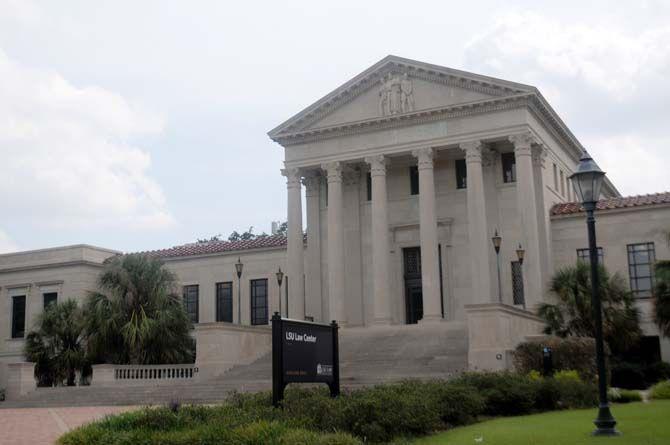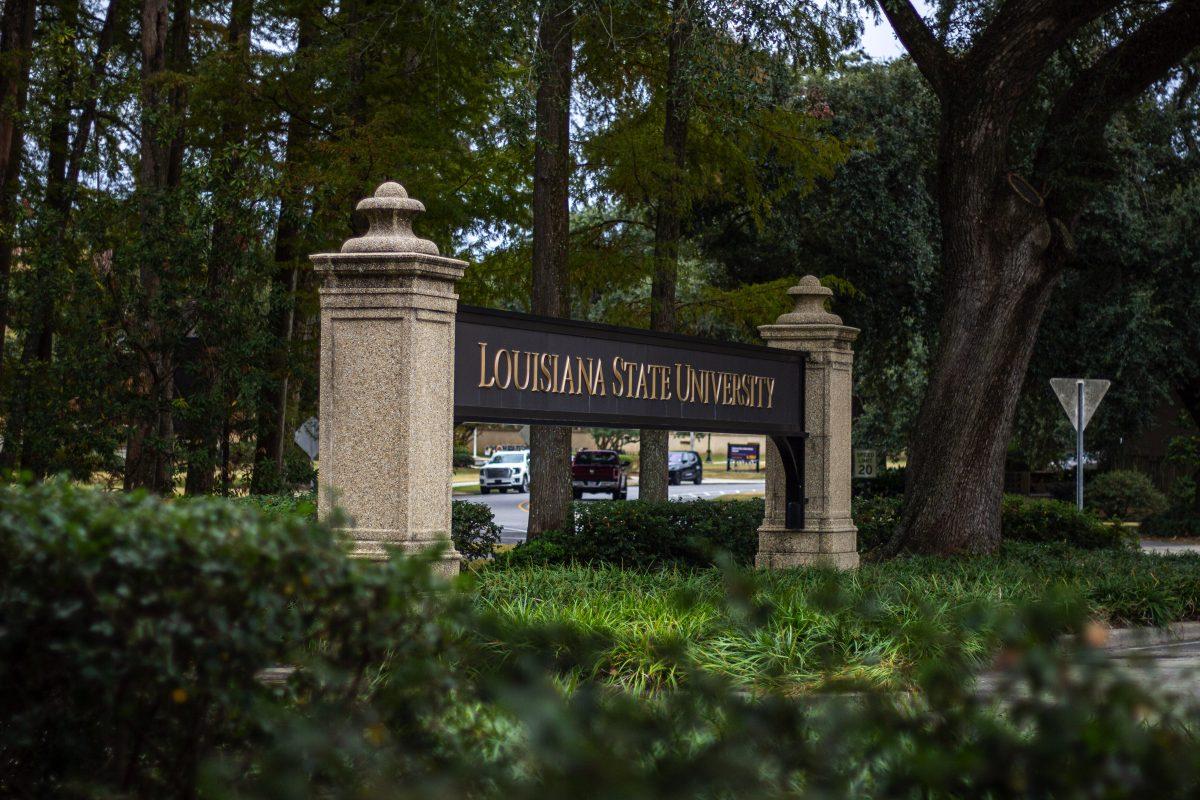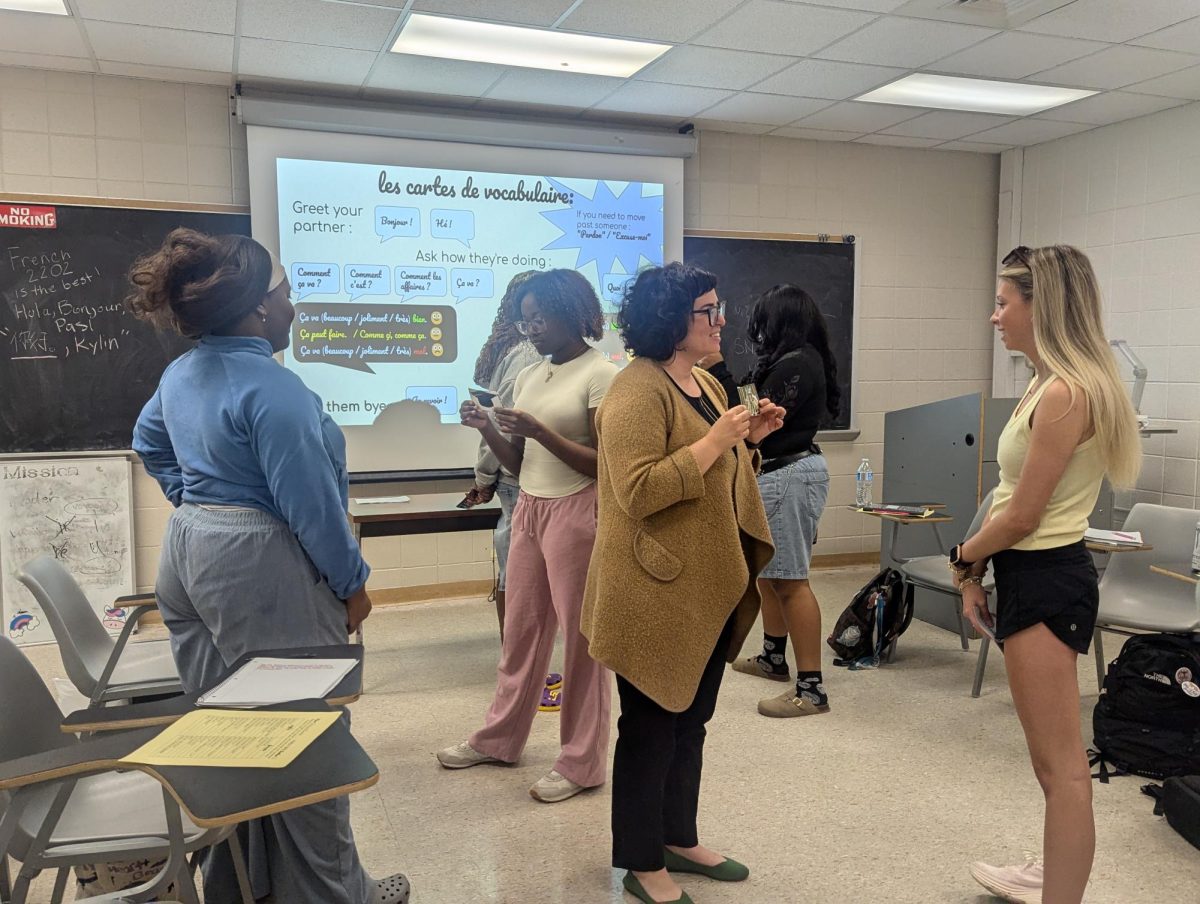Compared to other Louisiana law schools, LSU students achieved the greatest passage rate on the Louisiana State Bar Exam four out of the past five years, according to the most recent data from the LSU Paul M. Hebert Law Center’s website.
LSU’s scores fared just below some of the leading law schools in the Southeastern Conference and the nation, according to July 2014 bar passage rate statistics. Bar passage rates from the July 2015 examination will be released Oct. 8, according to the Louisiana Supreme Court Committee on Bar Admissions.
According to data provided by the Law Center, students in the university’s law program had a 25 percent greater passage rate than Southern University’s law school — the lowest scoring school in the state.
Out of the 173 LSU students who took the bar in July 2014, 32 students did not pass — roughly 4 percent of state’s test takers.
The data also shows that between 2010 and 2014, LSU increased its passage rates by nearly 5 percent. The passage rate for 2010 was 76.8 percent, which increased to 81.5 percent in 2014.
Compared to Harvard Law School’s passage rates, LSU falls short by roughly 15 percent. On average, Harvard students have a 96.3 percent passing rate, according to data provided by lawschoolnumbers.com and Harvard Law School.
Other institutions, such as Stanford University, Vanderbilt University, University of Alabama and University of Mississippi rank between LSU’s passage rates and Harvard’s. Data from lawschoolnumbers.com shows these schools also have lower acceptance rates than LSU.
Professor and interim law school co-dean William “Bill” Corbett said several factors affect bar passage rates. One main difference between the Louisiana State Bar Exam and bar exams elsewhere is that Louisiana issues an essay-based exam in contrast to the Multistate Bar Exam, or multiple choice exam, which is common nationally.
The Louisiana State Bar Exam focuses heavily on civil law and Louisiana law, he said. However, there are questions from the Multistate Bar Exam built into the Louisiana bar.
Corbett, who received his juris doctorate from the University of Alabama, said the Multistate Bar Exam is not “easy.” He was unable to say if Louisiana’s version was more difficult.
“Is it harder? I don’t know,” Corbett said. “It’s a different kind of exam that’s unique to the state.”
Corbett said he believes LSU is leading the state in bar passage rates because its law school curriculum requires civil code courses that match well with the content on the bar exam.
“Neither our curriculum nor our bar exam hinder our students from performing well once they are in practice,” Corbett said.
LSU does not emphasize turning to preparation methods outside the classroom, Corbett said, unlike other institutions, like Southern University and Loyola University New Orleans. However, LSU law professors recommend Kaplan and BARBRI as additional exam preparation materials for students who need more practice.
“If we’ve done our job well, a bar review would be only that — a review. We’ve never felt the need to host a bar preparation course because we believe our curriculum is good enough preparation for the bar exam,” Corbett said. “Our bar passage rate bears that out, I think.”
By 2016, LSU Law School’s new 3 + 3 pre-law program should be fully operational, offering students the opportunity to receive a bachelor’s and law degree within six years rather than seven. While it is difficult to say whether the program will affect bar passage rates, Corbett said he is certain 3 + 3 will bring students to the law school who are purpose-driven and studious.
“We may get very good undergraduates who make the decision early on to go to LSU’s law school, which for us is a great advantage,” Corbett said. “If 3 + 3 has any effect on our bar passage rates, my guess is that it’ll be a positive one, as well.”
LSU bar exam passage rates rank just below Ivy League, SEC schools
September 10, 2015
More to Discover










